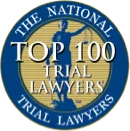Who Can Bring a Qui Tam Claim?
– Employees or competitors of the company committing fraud
– Members of the general public who become aware of the fraudulent activity
To be eligible to file a qui tam claim, the individual must be the first to report the fraud and submit the claim under seal to the court. This means that the lawsuit is initially kept confidential while the government investigates the allegations to determine their validity.
Understanding Qui Tam Eligibility
The individual who brings the claim is known as a “Relator” or “whistleblower.” As a Relator, they act on behalf of the government to expose fraudulent activity. If the government decides to intervene in the case, it assumes primary responsibility for prosecuting the lawsuit. In such instances, the Relator and their attorney work alongside the government to provide evidence and assist in the investigation.
However, if the government chooses not to intervene, the Relator can still proceed with the case independently. In this scenario, the relator takes on the role of the main plaintiff, and their legal counsel leads the prosecution. If successful, the relator may be entitled to a percentage of the funds recovered as a reward for exposing the fraud and assisting in the recovery process.
Qui tam claims are essential tools for combating fraud against the government, as they encourage individuals to come forward with valuable information without fear of retaliation. Although reporting fraud to the government is challenging, our experienced Washington D.C. qui tam attorney can help you navigate the legal system.
What Are Qui Tam Claims?
The FCA allows whistleblowers to receive a portion of the damages recovered by the government in a successful qui tam claim – from 15 to 30 percent of the total recovery, depending on the circumstances. To bring a qui tam claim, the Relator must have direct and independent knowledge of the fraud or misconduct.
Reasons to Bring a Qui Tam Claim
There are many reasons to file a qui tam claim, not the least of which are to combat fraud and protect taxpayer funds. These claims can also be financially rewarding for the Relator. As previously noted, if the government prosecutes the case, the relator may receive up to 30 percent of any damages awarded. If the government does not intervene, the individual may still be entitled to up to 25 percent of any damages awarded. Ultimately, filing a qui tam claim can shine a light on fraud and hold companies accountable for their actions.
Common Claims Brought Under the False Claims Act
Qui tam claims can be brought for all types of fraud or misconduct against the government, including:
Healthcare Fraud
The government or relators can bring claims against healthcare providers who submit false claims for payment to Medicare or Medicaid. Examples of healthcare fraud include billing for services not provided, upcoding (billing for a more expensive service than provided), and kickbacks.
Defense Contractor Fraud
Defense contractors who submit false claims for payment to the government can also face qui tam claims. Examples of defense contractor fraud include billing for work never performed or charging excessive prices for goods or services.
Environmental Fraud
Companies that violate environmental laws or regulations, such as submitting false reports or certifications to regulatory agencies or failing to report hazardous materials releases, may be liable for environmental fraud.
Financial Fraud
Companies that engage in financial misconduct (e.g. securities fraud, mortgage fraud) can face qui tam claims.
Federal Grant Fraud
Federal grant fraud involves knowingly and intentionally deceiving the government or a federal agency to obtain funds through fraudulent means and it typically involves misrepresenting information in grant applications, reports, or other grant-related documents. It may also mean accounting for the grant funds incorrectly.
Procurement Fraud
Companies that submit false or fraudulent bids for government contracts or engage in other procurement-related fraud may be liable for procurement fraud.
In short, qui tam claims allow whistleblowers to come forward with information about fraud or misconduct that they may not have otherwise been able to disclose. The FCA also protects whistleblowers against retaliation by their employers. A relator subjected to an adverse employment action (e.g. dismissal, demotion, discipline) may be entitled to damages, such as:
- Reinstatement
- Double back pay
- Compensation for special damages
In recent years, qui tam claims have become increasingly common in healthcare and defense contracting industries. The government has recovered billions of dollars, and whistleblowers have received substantial rewards.
Can I Remain Anonymous When Reporting As A Whistleblower in Washington DC?
Initially, the complaint is filed under seal, keeping it confidential from the public. This allows the government to investigate the allegations without revealing the whistleblower’s identity. During the investigation, the whistleblower’s identity may be disclosed to investigators and attorneys, but it can remain confidential if the government does not intervene, and the case proceeds under the whistleblower’s name.
Other whistleblower laws, such as those enforced by the SEC and IRS, also provide confidentiality protections. The SEC’s whistleblower program allows individuals to report securities fraud while keeping their identity confidential, provided they have legal representation.
To protect anonymity effectively, whistleblowers should engage a qualified whistleblower attorney. A whistleblower attorney can guide the reporting process, preserve confidentiality, and represent the whistleblower in communications with government agencies.
Why Solomon Law Firm?
Our attorneys can advise you about the process, the potential risks and rewards of bringing a qui tam claim, and your rights and obligations under the law. If we believe your claim is viable, we will:
- Investigate and collect evidence to prove fraud or misconduct by conducting interviews, obtaining documents, and analyzing data to build a strong case
- Draft and file a complaint that meets the legal requirements of the False Claims Act
- Negotiate with the government to help you receive a fair share of any recovery
- Represent you in court, present evidence, argue legal points, and advocate for your interests
Although the False Claims Act protects whistleblowers from retaliation, it takes a skilled qui tam attorney to protect you from potential adverse employment action. Trust our legal team to protect your rights and get the maximum reward and recovery permitted by law.
Contact Our Experienced Washington D.C. Qui Tam Attorneys
Politicians often decry waste, fraud, and abuse, but it takes the courage of whistleblowers like you to combat fraud against the government. Contact Solomon Law today for a confidential consultation. At Solomon Law, our experienced team of whistleblower and Qui Tam lawyers are dedicated to safeguarding the rights of whistleblowers and preserving their anonymity. We understand the concerns and risks whistleblowers face when reporting misconduct and are prepared to provide you with support and experienced legal counsel throughout the process.
If you are considering blowing the whistle on fraud or misconduct and wish to remain anonymous, contact a skillful whistleblower attorney in DC at [1-866-8FedLaw] for a confidential case evaluation. Our team will advocate for your rights and explore the best options to maintain your anonymity while seeking justice.













